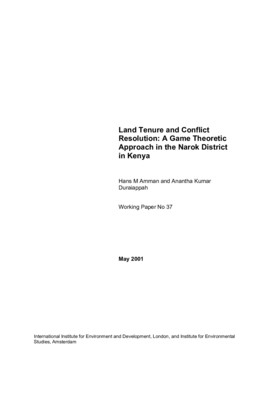Land Tenure and Conflict Resolution: A Game Theoretic Approach in the Norak District in Kenya

Many conflicts in the developing world can be traced to disputes over land ownership, land use and land degradation. In this paper we test the hypothesis that differences in knowledge structures on land tenure and market systems between different leaders within these countries has caused marginalisation of some leaders by the others. We develop a game theoretic model to test our hypothesis by analysing the complex interdependencies existing among the various leaders in the Narok district in Kenya. Preliminary results seem to confirm that differences in knowledge structures among the various leaders over land and agricultural markets might have been the catalysts of conflicts. In order to reduce these discrepancies, we recommend the adoption of a hybrid land tenure system whereby land ownership is based on individual titles, while the use and sale of the land is governed by communal rules established by a community participatory process, and the formation of an information network comprising all leaders, with the main objective to provide a forum for exchange of ideas and information pertaining to land use options and the opportunities offered by the market system.
Cite this publication
Available at https://www.iied.org/9036iied